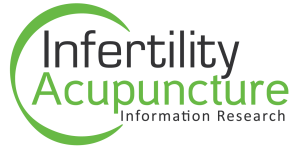Can fertility acupuncture help with depression? It may sound like a strange idea, but the two may be more connected than you think. Let’s have a closer look.
Relax and it will happen, they say. Does your stress contribute to infertility or does the emotional rollercoaster of not being able to conceive lead to stress and depression? Stress and infertility – a classic Catch-22?
Many couples dealing with infertility experience increased levels of anxiety and depression, which can put a strain on their relationship and even affect their ability to conceive. Dealing with infertility causes significant distress.
Unmanaged depression can have a negative effect on a couple’s relationship. It can affect the libido in both partners, and it even has a toll on sperm quality. No surprise that men diagnosed with major depression are less likely to conceive a child. And women with severe symptoms have 38 per cent fewer conceptions each month.
So what can you do to address this? Are there any safe treatment options?
Many studies have explored and showed the negative effects of antidepressants on pregnancy and on health of a developing baby. We are not yet certain how these drugs affect fertility.
For instance, women undergoing medical treatment for depression are more likely to miscarry. The same study links the use of antidepressants and male infertility. If you are in a position to choose, discuss non-pharmaceutical treatment with your doctor. For those looking for a safe and effective alternative, fertility acupuncture may be worth considering.
How to overcome your depression naturally when trying for a baby
There are a few effective non-drug interventions. We recommend a combination of
- Acupuncture
- Counselling / Cognitive Behavioral Therapy
- Exercise, including cardio, weight training or yoga
- Healthy nutrition
Acupuncture – a safe effective alternative
Acupuncture it has been shown to reduce stress and anxiety. In fact, these are some of the well-known benefits of fertility acupuncture. The majority of our patients report feeling more relaxed after they start with our treatment. We go one step further and personalise fertility acupuncture to your situation taking into account any of stress/anxiety or depression symptoms.
In 2019 our Australian colleagues from the University of Western Sydney investigated if acupuncture is a suitable treatment for depression. They perused numerous studies from Asia and English speaking countries and summed up their findings in a systematic review and meta-analysis. The conclusion? Acupuncture has significant benefits for patients with depression. It may be used as an additional treatment alongside antidepressants or even as a stand-alone therapy for less severe depression.The average successful treatment involved about two to three acupuncture sessions per week. Patients continued with the treatment for several weeks. The more treatments patients had the better were outcomes.
Utilising Acupuncture for fertility and depression is like feeding two birds with one scone.
Acupuncture for Depression: A Systematic Review and Meta-Analysis
Mike Armour, Caroline A. Smith, Li-Qiong Wang, Dhevaksha Naidoo, Guo-Yan Yang, Hugh MacPherson, Myeong Soo Lee, and Phillipa Hay
Abstract
Background: Depression is commonly treated with anti-depressant medication and/or psychological interventions. Patients with depression are common users of complementary therapies, such as acupuncture, either as a replacement for, or adjunct to, their conventional treatments. This systematic review and meta-analysis examined the effectiveness of acupuncture in major depressive disorder. Methods: A search of English (Medline, PsychINFO, Google Scholar, and CINAL), Chinese (China National Knowledge Infrastructure Database (CNKI) and Wanfang Database), and Korean databases was undertaken from 1980 to November 2018 for clinical trials using manual, electro, or laser acupuncture.
Results:
Twenty-nine studies including 2268 participants were eligible and included in the meta-analysis. Twenty-two trials were undertaken in China and seven outside of China. Acupuncture showed clinically significant reductions in the severity of depression compared to usual care (Hedges (g) = 0.41, 95% confidence interval (CI) 0.18 to 0.63), sham acupuncture (g = 0.55, 95% CI 0.31 to 0.79), and as an adjunct to anti-depressant medication (g = 0.84, 95% CI 0.61 to 1.07). A significant correlation between an increase in the number of acupuncture treatments delivered and a reduction in the severity of depression (p = 0.015) was found. Limitations: The majority of the included trials were at a high risk of bias for performance blinding. The applicability of findings in Chinese populations to other populations is unclear, due to the use of a higher treatment frequency and a number of treatments in China. The majority of trials did not report any post-trial follow-up and safety reporting was poor.
Conclusions:
Acupuncture may be a suitable adjunct to usual care and standard anti-depressant medication.


